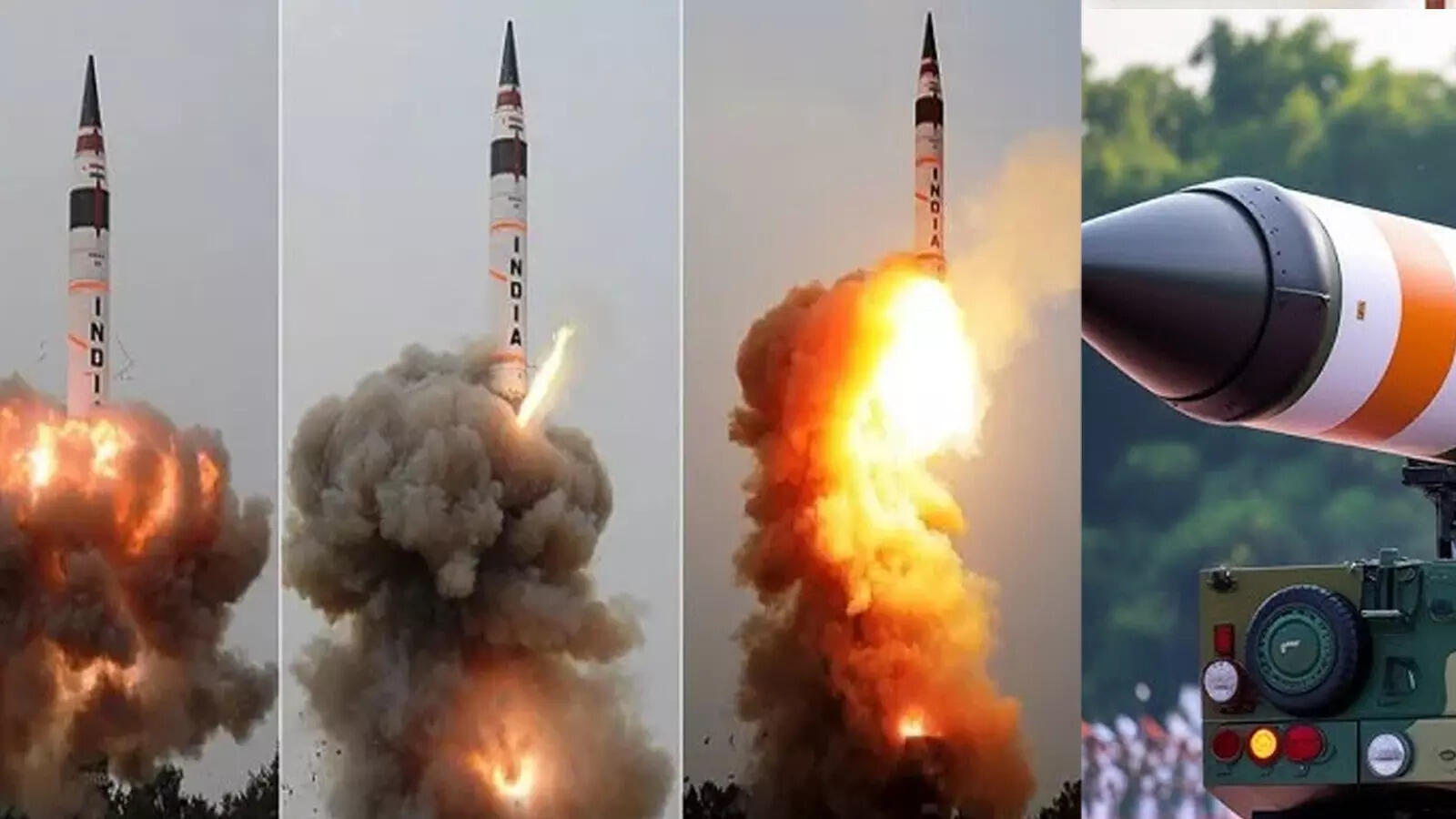Politics
India Tests Agni-5 Missile, Raises Concerns in Pakistan and Beyond

India has successfully conducted a test of its long-range ballistic missile, the Agni-5, which has a range of 5,000 km. This test has elicited significant reactions from Pakistan, sparking concerns over regional stability. The missile’s capability not only covers Pakistan but also extends to parts of China, heightening tensions in an already complex geopolitical landscape.
In reaction to the test, Pakistan’s Foreign Office condemned the missile launch. Officials described it as a “dangerous trend,” warning that India’s ongoing advancements in military technology could undermine peace and security in South Asia. The Foreign Office emphasized that this rapid development of weapons systems poses a serious threat to the stability of the region.
On the other hand, Indian authorities assert that the Agni-5 enhances the country’s deterrence capabilities, which are vital for protecting national interests. They argue that these advancements are necessary in light of evolving security challenges in the region. The successful test, taking place at the Chandipur test range, highlights India’s commitment to strengthening its defense technology and readiness.
International Reactions and Implications
The implications of the Agni-5 missile test extend beyond India and Pakistan. Military analysts note that the missile’s range allows India to project power further into Asia, which could prompt a recalibration of defense strategies among neighboring countries, particularly China. As India continues to develop its military capabilities, concerns grow regarding a potential arms race in the region.
International observers are closely monitoring the situation. The missile test comes at a time when regional tensions remain high, and diplomatic relations between India and Pakistan have been strained. Experts believe that the test may compel other nations to reassess their position on defense and security in South Asia.
Both nations have a history of military tensions, and each new development can lead to an escalation in rhetoric and military preparedness. The Agni-5 test is likely to lead to increased military exercises and strategic planning on both sides, as each seeks to maintain a balance of power.
Future Outlook
As the geopolitical landscape evolves, the focus will remain on how India and Pakistan navigate these developments. The successful Agni-5 test is a significant milestone for India, showcasing its technological advancements in defense. However, the potential for increased instability in the region cannot be overlooked.
The global community will watch closely as both nations respond to this latest development. Diplomatic efforts may intensify as stakeholders seek to mitigate risks associated with military escalation. For now, the Agni-5 missile test serves as a reminder of the delicate balance of power in South Asia and the ongoing need for dialogue and engagement to promote regional stability.
-

 World5 months ago
World5 months agoSBI Announces QIP Floor Price at ₹811.05 Per Share
-

 Lifestyle5 months ago
Lifestyle5 months agoCept Unveils ₹3.1 Crore Urban Mobility Plan for Sustainable Growth
-

 Science4 months ago
Science4 months agoNew Blood Group Discovered in South Indian Woman at Rotary Centre
-

 World5 months ago
World5 months agoTorrential Rains Cause Flash Flooding in New York and New Jersey
-

 Top Stories5 months ago
Top Stories5 months agoKonkani Cultural Organisation to Host Pearl Jubilee in Abu Dhabi
-

 Sports4 months ago
Sports4 months agoBroad Advocates for Bowling Change Ahead of Final Test Against India
-

 Science5 months ago
Science5 months agoNothing Headphone 1 Review: A Bold Contender in Audio Design
-

 Top Stories5 months ago
Top Stories5 months agoAir India Crash Investigation Highlights Boeing Fuel Switch Concerns
-

 Business5 months ago
Business5 months agoIndian Stock Market Rebounds: Sensex and Nifty Rise After Four-Day Decline
-

 Sports4 months ago
Sports4 months agoCristian Totti Retires at 19: Pressure of Fame Takes Toll
-

 Politics5 months ago
Politics5 months agoAbandoned Doberman Finds New Home After Journey to Prague
-

 Top Stories5 months ago
Top Stories5 months agoPatna Bank Manager Abhishek Varun Found Dead in Well









